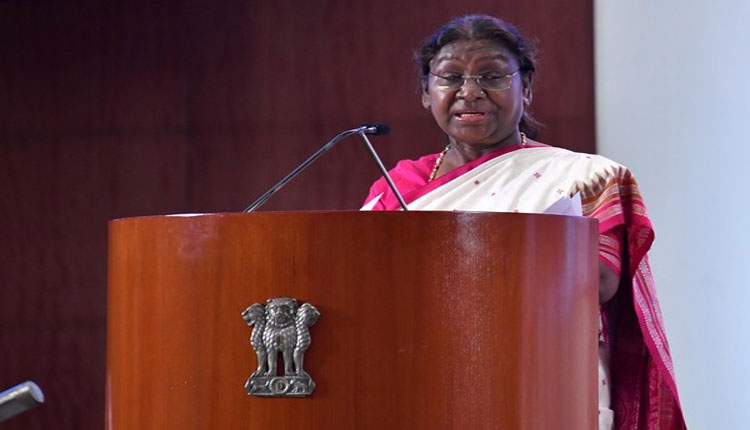New Delhi: President Droupadi Murmu emphasised the need for prompt and effective justice while addressing the National Conference of District Judiciary on Sunday, September 1. The event, held at India Mandapam, was attended by Chief Justice of India D. Y. Chandrachud and Union Minister of State for Law and Justice Arjun Ram Meghwal.
President Murmu expressed concern over the culture of frequent adjournments in courts, urging for changes to ensure speedy justice. “Pending cases in our courts are a significant challenge. Finding solutions to this issue should be a priority for everyone involved in the judicial process,” she stated.
The President highlighted the responsibility of all judges to protect and uphold justice. She noted that the lengthy process of litigation often increases stress for ordinary citizens, particularly in sensitive cases such as rape. “When decisions are delayed, people perceive a lack of sensitivity,” she remarked, calling for more efficient handling of such cases to restore public faith in the judicial system.
Drawing inspiration from the Supreme Court’s motto, ‘Yato Dharmah Tato Jayah’ – ‘Where there is righteousness, there is victory’ – President Murmu emphasised that the principles of justice must always prevail. She also expressed satisfaction over the Supreme Court’s efforts in organising events like this to strengthen people’s trust in the judiciary.
Addressing the alarming rise in crimes against women and children, President Murmu appealed to district court judges to prioritise these cases and expedite verdicts. “Ensuring swift justice in these matters is essential for fostering a sense of security among women and society as a whole,” she stressed.
During the event, President Murmu also unveiled the new flag and emblem of the Supreme Court, marking a symbolic step towards reinforcing the commitment to justice.
By calling for reduced delays and greater sensitivity, President Murmu’s address underscored the need for a more responsive and efficient judicial system that meets the expectations and needs of the people.



Comments are closed.